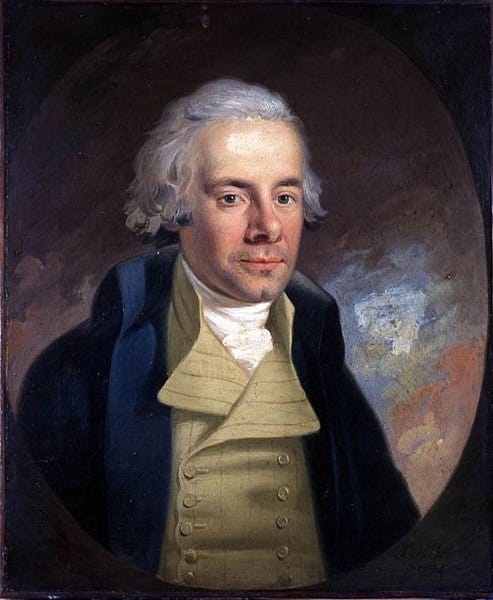Review of John Pollock's "Wilberforce" (1977)
Book Review: Abolition History; British History; 18th Century History; Biography
John Pollock, Wilberforce (Tring, UK: A Lion Paperback, 1977), pgs. 368.

The radical shifts of the 18th and 19th centuries that undermined the acceptability of chattel slavery are some of the most important transformations in human society. When viewed in the long progression of history, the attacks on slavery that originated in the British world, namely its North American colonies and in Great Britain itself, are an odd exception to a long tradition that had accepted slavery as a reality of human existence. Understanding this change and its origins in Christian teachings combined with Enlightenment thought still drive countless scholars across the globe. Many scholars today have shifted from studying individuals in the abolition movement and have instead focused on the broader movement. However, there is incredible benefit in exploring the individual lives of abolitionists to understand better the diverse tapestry of human life that made up the abolition movement.
One of the most famous, at least in the British world, is William Wilberforce, the Hull M.P. who dedicated his life from the 1780s through his death in the 1830s to the abolition of the international slave trade and slavery itself in the British Empire. While some scholars have decidedly moved from narratives discussing Wilberforce, his contributions to the cause of freedom cannot be ignored. In this regard John Pollock’s classic biography Wilberforce (1977) provides excellent insight into the life of one of slavery’s most prominent opponents. Written in a flowing and engaging style, there is a reason that many still look to Pollock’s work as the best biography of Wilberforce. Furthermore, his grasp on Wilberforce’s religiosity, an aspect that some scholars struggle in portraying, helps further cement his work. Pollock not only covers the life of Wilberforce, but engages with debates concerning Wilberforce that have continued to the present. He insightfully demonstrates that arguments that Wilberforce cared only for the enslaved and not the poor of England (a still popular argument in certain scholarly circles) in fact derives from pro-slavery apologists who ignored Wilberforce’s body of work in aiding the poor. Pollock carefully illustrates the character and convictions of Wilberforce, demonstrating that his methods of helping the poor were in part informed by the radicalness of the French Revolution. Willing to point out flaws in Wilberforce, nevertheless, Pollock is sympathetic to Wilberforce, which at times leads to justifications for his decisions.
Pollock’s work is an exceptional addition to the field of abolition history. It is not the definitive word on Wilberforce, even Pollock noting that Wilberforce was only one cog in a larger machine of the abolition movement. However, he makes the excellent point, unstated but strongly present throughout the text, that Wilberforce’s contributions did matter to the fight against slavery. I recommend this book heartily to both academics and non-academics as it has both readability and scholarly depth. It is a powerful work, and one that deserves to continue to be apart of scholars discussions, particularly in the 21st century as many students lack understanding about Wilberforce’s efforts and contributions.
- Robert Swanson -



